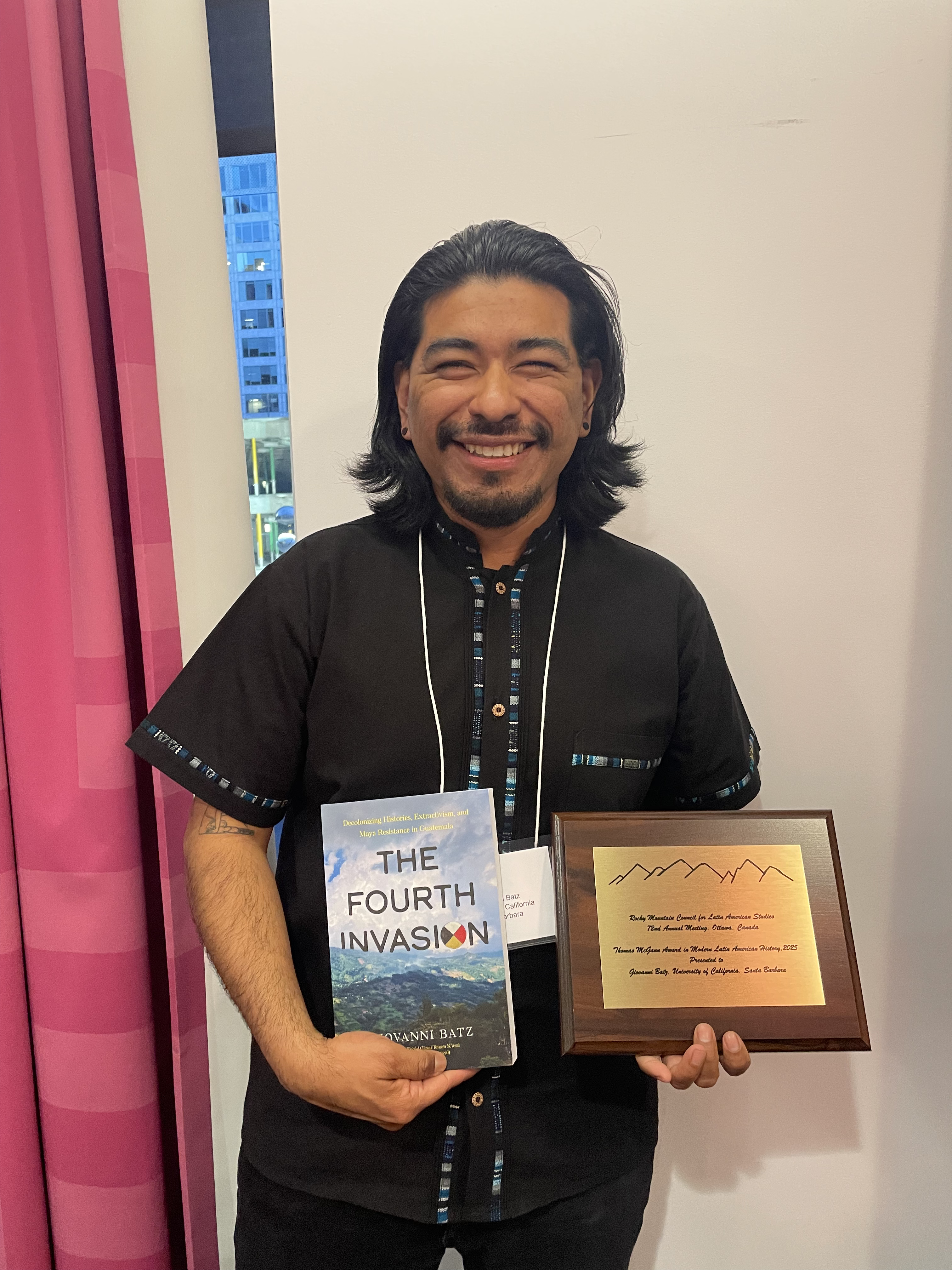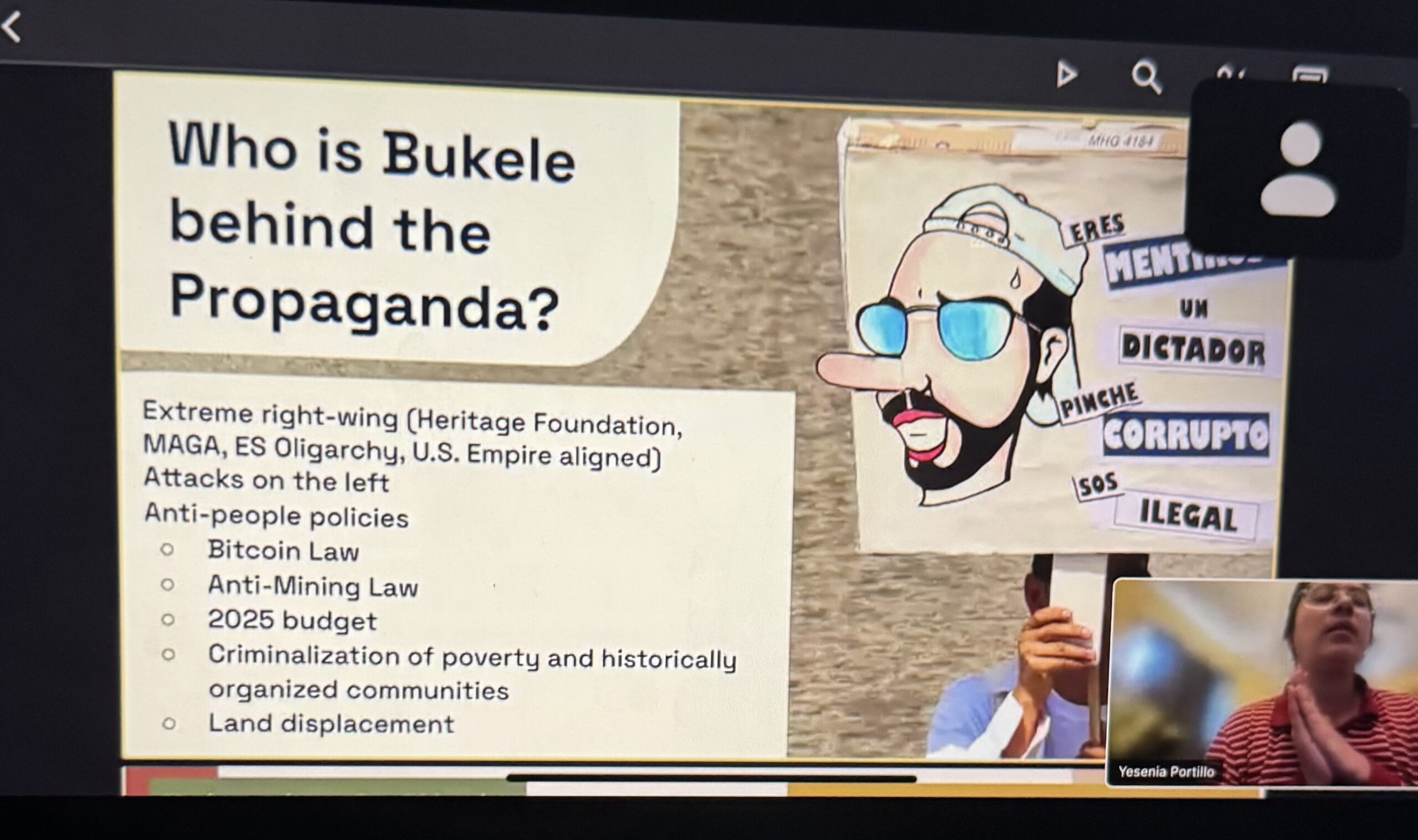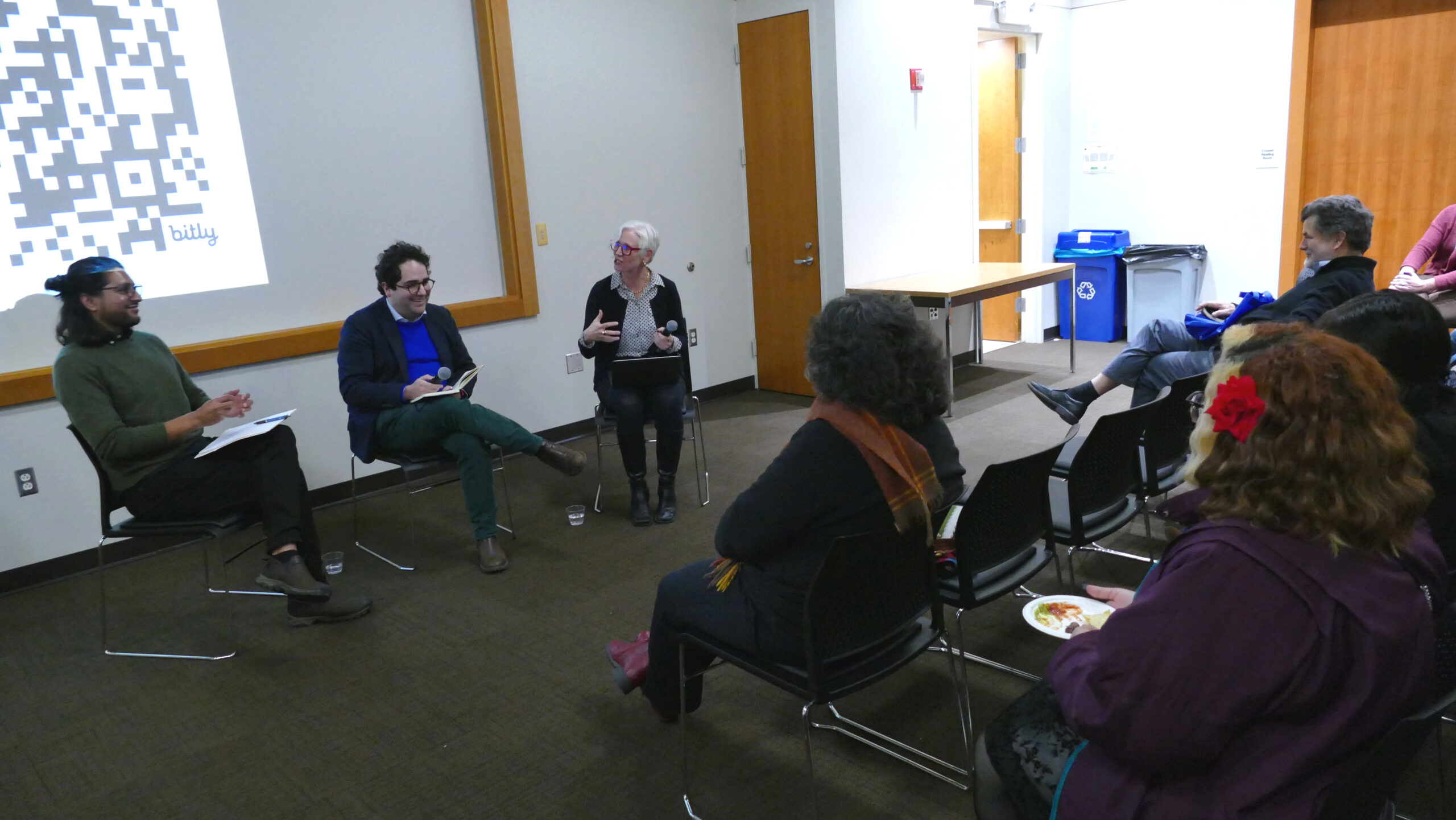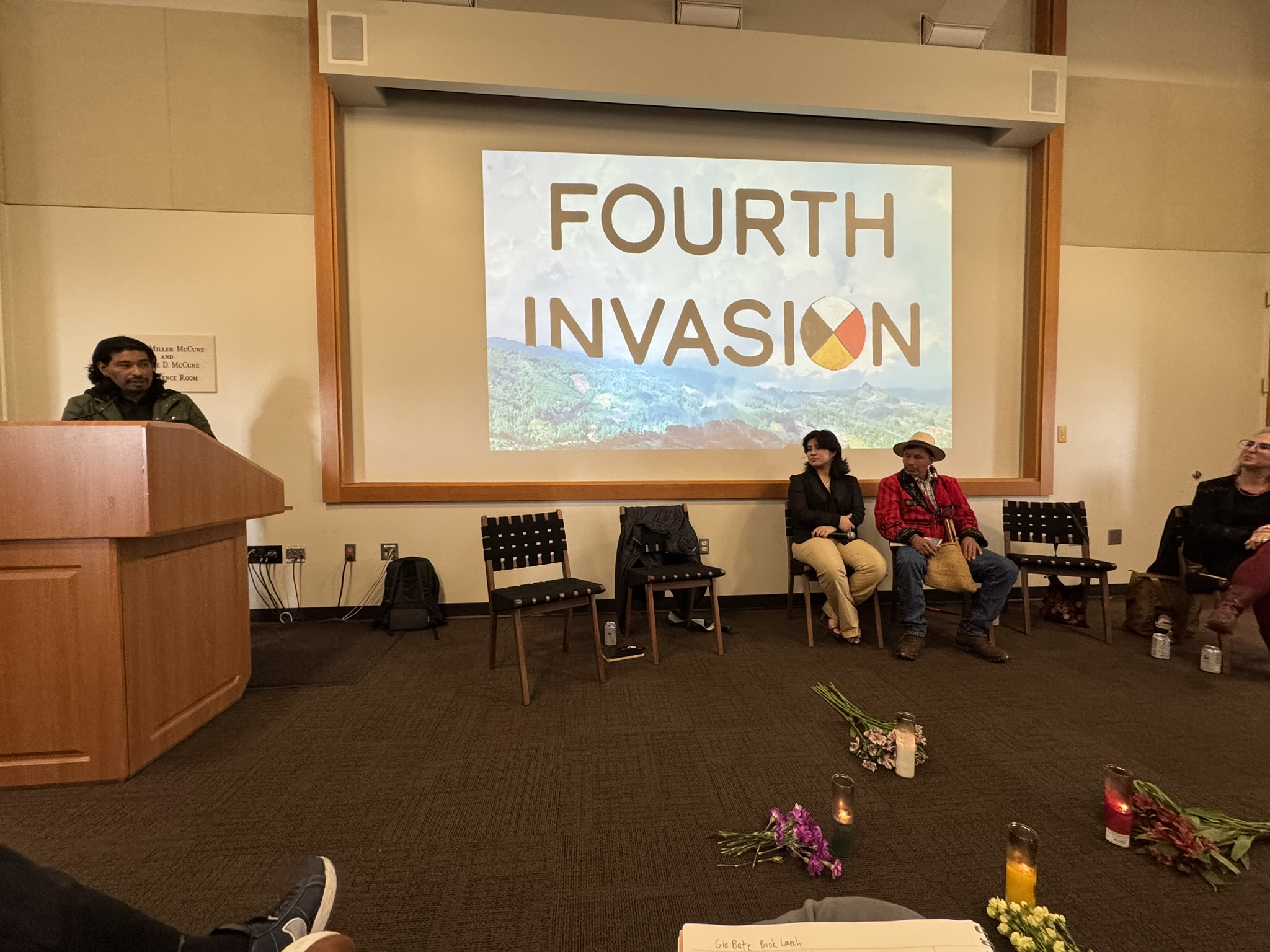-
Professor Giovanni Batz Awarded Thomas McGann Book Prize in Modern Latin American History for “The Fourth Invasion”

The LAIS Program would like to congratulate Professor Giovanni Batz, Associate Professor of Chicano Studies and head of the CLAIR… read more
-
Notes on LAIS Tertulia: Grassroots Resistance to Bukele’s Authoritarian Regime in El Salvador

On February 27th, we were joined via webinar by Yesenia Portillo, director of CISPES (Committee in Solidarity with the People… read more
-
Notes on LAIS Tertulia: Violence and Drug Trafficking in Ecuador
On February 14th, we were joined on a webinar by Michelle Maffei (Universidad de Guayaquil), Alejandro Borja (Universidad San Francisco… read more
-
Reflecting on Professor Cobo’s Book Presentation

The second event sponsored by the new Center for Latin American and Iberian Research was the book presentation on February… read more
-
Reflecting on Professor Batz’ Book Presentation

The first event sponsored by the new CLAIR (Center for Latin American and Iberian Research) at UCSB was Dr. Giovanni… read more
-
Notes on Dr Adriana María Linares-Palma’s Talk: “Community-based archaeology in the Ixil region, Guatemala”
On October 8, Dr. Adriana Linares-Palma came to present her work on community-based archaeology in the Ixil region of Guatemala. … read more
University of California, Santa Barbara

Latin American and Iberian Studies Program
Photograph: Tristan Partridge
Welcome to LAIS
The Latin American and Iberian Studies Program at the University of California, Santa Barbara is devoted to the study of the histories, languages, literatures, and cultures of the peoples of Latin America and Iberia, from antiquity to the present day, and of their diasporas in Africa, Asia, and the Americas — including the Latino/a communities of the United States.
Our affiliated faculty, scholars, and students examine a diversity of themes and issues — including history, religion, politics, gender, language, literature, music, and performance — drawing on a broad range of disciplines across the humanities, fine arts, social sciences, and more.
This rich and engaged scholarly community allows us to offer our students thorough interdisciplinary training in our undergraduate major and minor and in the MA in Latin American and Iberian Studies, and to support PhD students engaged in the study of Latin America and Iberia across campus. Join us!